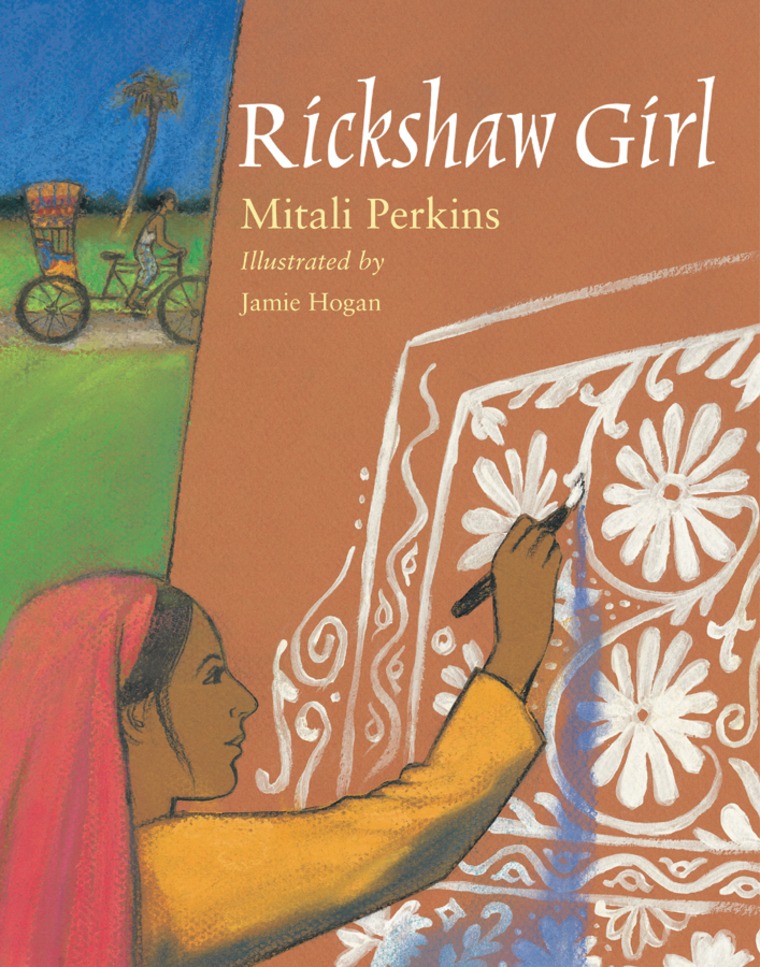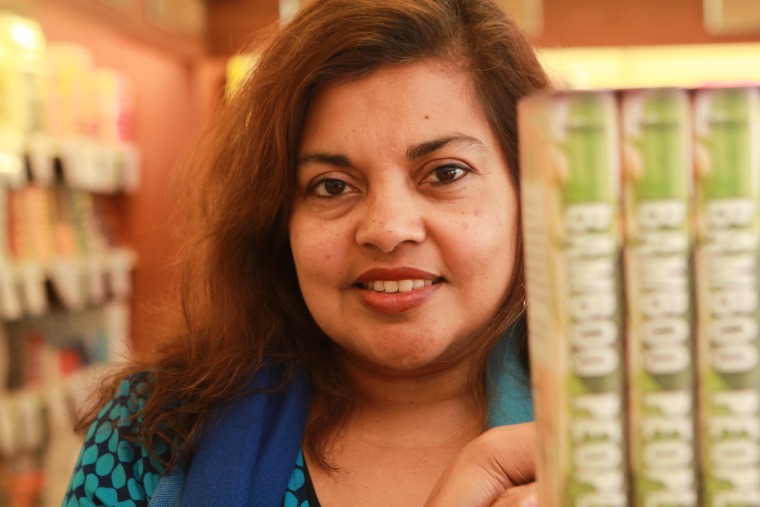A popular children’s book about a Bangladeshi girl who decides to disguise herself as a boy in order to work and help pull her family out of poverty is being adapted for the big screen.

First published in 2007, Mitali Perkins’s “Rickshaw Girl,” follows Naima, the daughter of a rickshaw driver who lives with her family outside of a large city. Already acknowledged as a gifted artist with a flair for creating "alpanas"— painted designs created with rice flour and water popular in Bangladesh and West Bengal — Naima longs to be able to use her talents to help her parents. To do so, she decided to dress as a boy and go out into the working world.
“I lived in Bangladesh for three years and I speak Bangla,” Perkins told NBC News, adding that she worked with several non-government organizations and became familiar with the work of the microlending platform Grameen Bank during that time.
“I was talking to women and I’d hear how empowering it was for women to be able to contribute to the family economically," she said. "The idea was just in my mind.”
“I was the third daughter and everyone cried when I was born. Everyone but my daddy. He said, ‘Girls are a blessing from God.’”
Perkins became particularly struck by the beautifully decorated rickshaws she’d see as she traveled throughout the country.
“When you go to Bangladesh, rickshaws are all over the place, and they are decorated with alpanas, some of which tell entire stories,” she recalled.
Perkins said she then began thinking of what it would be like to grow up as a young girl in one of the families she passed every day.
“I was the third daughter and everyone cried when I was born,” Perkins said. “Everyone but my daddy. He said, ‘Girls are a blessing from God.’”

The decision to set the book in Bangladesh was a particularly poignant one for Perkins. Her parents were born in what was then East Bengal before the 1947 partition of India. "Many families moved to West Bengal then, but it never felt like home,” Perkins said. Her family later moved to London and then New York when Perkins was seven.
Since its publication, “Rickshaw Girl” has been published in several Asian languages and the film rights were optioned several years ago. “When your book is adapted it, it takes a life of its own,” Perkins said.
Given the setting and Perkins’ own personal history, she said she is particularly happy “Rickshaw Girl” will be directed by a Bangladeshi filmmaker, Amitabh Reza Chowdhury, and that the Bangladeshi-American writer Sharbari Z. Ahmed will assist with the screenplay as a script consultant.
RELATED: 'Quantico' Writer Sharbari Ahmed on Perseverance, Identity and Life in the Writers Room
Ahmed, who moved to the United States from Bangladesh with her family when she was just three weeks old, said getting to ride on a rickshaw was one of her favorite parts about visiting the country as a child. “Rickshaws were novel to you as a child because they were so colorful and vibrant,” Ahmed told NBC News. “Rickshaw art was part of the scenery and lately people are recognizing it as an art form.”
Ahmed added that while she was happy to help tell the story of a character whose background was so similar to her own, she was particularly excited about contributing to showing the world how diverse the Muslim experience is.

“Naima is Muslim, and more importantly, she is a Bangladeshi Muslim. Hollywood tends to have images of Muslims that come out of the Middle East,” Ahmed said. “I wrote for ‘Quantico' and there were people in hijab, but what’s largely ignored is that Islam manifests itself in different ways in different cultures.”
Noting that both Hollywood and audiences have recently embraced films about strong women and girls, Ahmed said she was also eager for moviegoers to watch the story of a teen navigating a society that is often very hostile.
“Naima is not a cosseted teen,” she said. “She is almost from the slums, her family barely has money to put food on the table. We wanted to show what it was like being on the edge of womanhood in a country that is quite conservative.”
Follow NBC Asian America on Facebook, Twitter, Instagram and Tumblr.